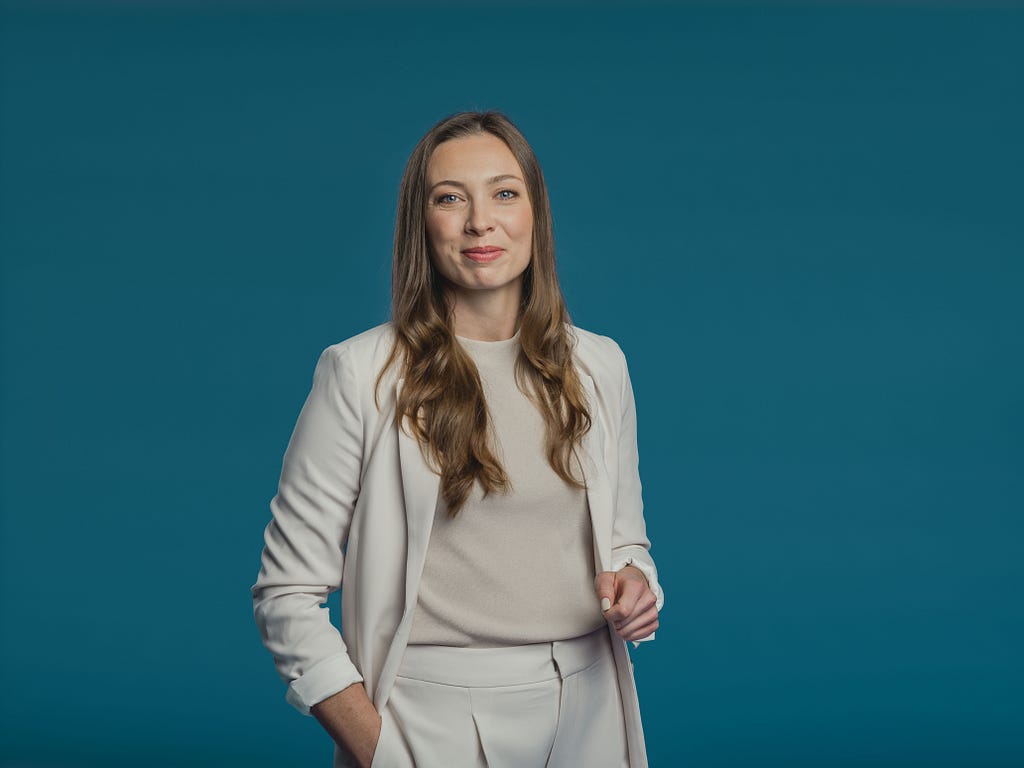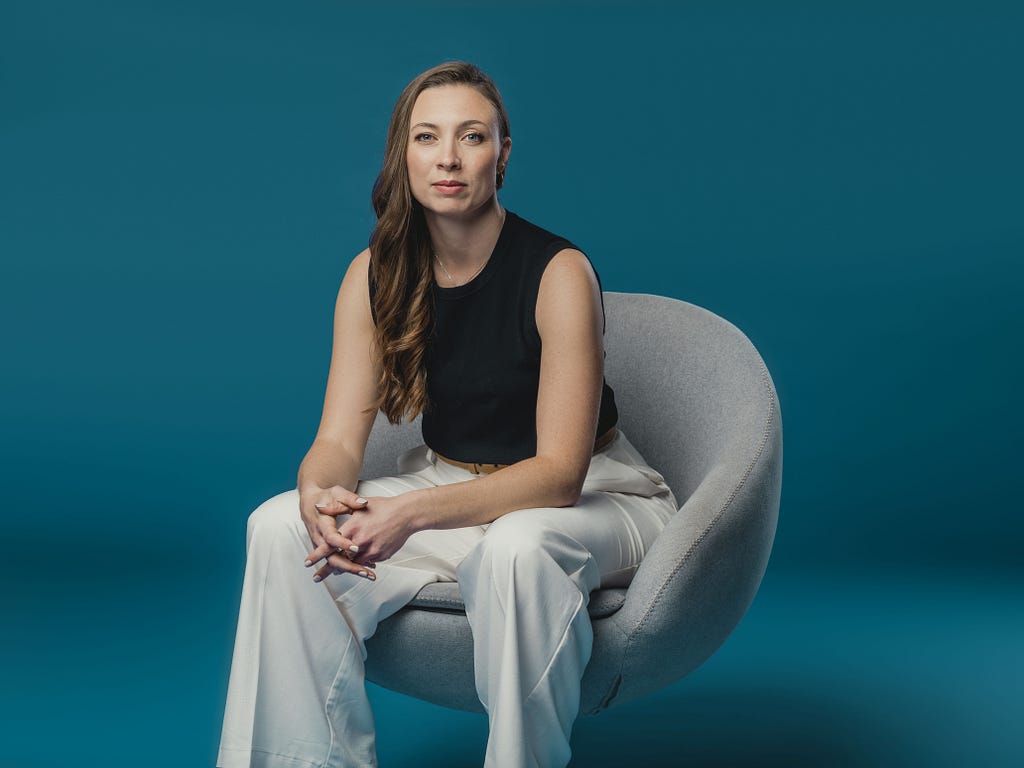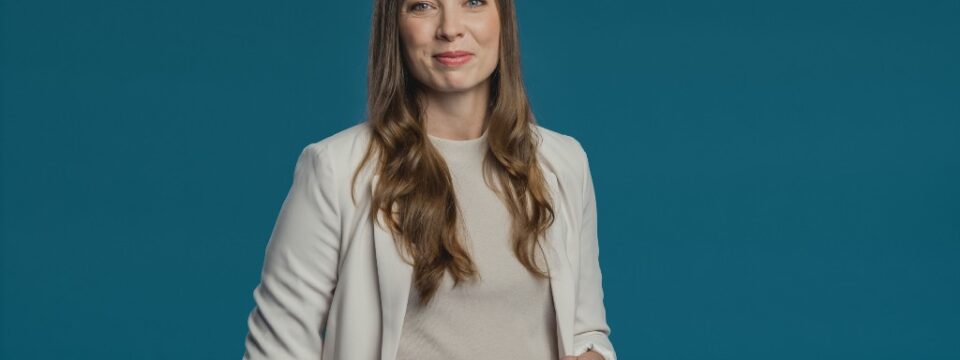
That healing and recovering doesn’t have an endpoint. Being in dentistry, it’s easy to have a start and a stop. You have diagnosis of a cavity, you take it out, restore it and the procedure is complete. There is a start and an end. But healing your mind, your body and your soul is continuous. There is no end point. You have to want to do better, be better and live better each and every day; even when you’re getting the stuffing kicked out of you. On those days, you get to rest and nurture yourself. But, knowing there is no end gives me the opportunity to keep evolving as a human being.
As part of my series about “authors who are making an important social impact”, I had the pleasure of interviewing Dr. Jessica Metcalfe.
Dr. Jessica Metcalfe is a Strategic Leadership and Workplace Culture Consultant with a focus on professional and personal development. She is a former dental oncologist and education director at one of the top 5 cancer centers in the world. She started out by teaching the medical and dental community how to improve a patient’s quality of life post-cancer therapy and now helps high achievers and teams improve their quality of life preventing burnout and navigating impostor syndrome, perfectionism and people pleasing.
Thank you so much for joining us in this interview series! Before we dive into the main focus of our interview, our readers would love to “get to know you” a bit better. Can you tell us a bit about your childhood backstory?
I was the kid who was always laughing at everything; a smile was plastered on my face. But growing up with a bipolar mother presented many challenges, so I often found myself taking on a parental role. This gave me the opportunity to learn patience and compassion, which I could then pass on to my patients as a dental oncologist. There has always been a part of me that wanted to help others to try to evolve and to see a different perspective. I’ve used my experience to teach the dental and medical community how to improve the quality of life of patients, post-cancer therapy. Eventually, I realized I wanted to create a movement and teach high achieving women how to enhance their quality of life personally and professionally.
When you were younger, was there a book that you read that inspired you to take action or changed your life? Can you share a story about that?
I was moved by The Giver by Lois Lowry — a story of one youth who chose to share vulnerability and emotions among his community instead of shouldering it all himself. This inspired me to want to help others in my own unique way.
It has been said that our mistakes can be our greatest teachers. Can you share a story about the funniest mistake you made when you were first starting? Can you tell us what lesson you learned from that?
The funniest mistake I made when I started was assuming that everyone would see my social media posts and that it was so important to be perfect. I laugh at this now. There is SO much being posted all the time that it really is only a drop in the bucket. In order to have a splash in that bucket, you have to be consistent and put high-value content out there. I was so afraid of wording or hashtags or who would see it that for years, it prevented me from being myself as well as putting out all the educational content. I had to move past what making a mistake or being imperfect would feel like.
Can you describe how you aim to make a significant social impact with your book?
Far too often, our inner voice gets biased over. Yes, we have “gut” reactions but not too often are we truly listening to what we have to say to ourselves. Research has shown that our inner voice is heard just as loudly as someone speaking to us. Which means, if you say unkind and hurtful things to yourself, then you will believe it. If we can change our inner voice, we can change how we then show up in this world. For women in particular, it means believing you are more than enough to ask for that promotion, to apply for that job, to say “no” when you are overextended and to ultimately believe that you are capable. You can only start to implement boundaries, take care of yourself, recover from burnout and perfectionism and conquer impostor syndrome by changing how you choose to speak to yourself.
Can you share with us the most interesting story that you shared in your book?
The most interesting story I shared in my book is the one about one of my patients. I was getting him ready for his head and neck radiation treatment when he started sharing a story from his younger years. This patient was elderly, with a cane and hunched over. He knew why he was seeing me and the importance of our visit, however, he was happy to share about his life.
He told me about the time when he unexpectedly became a CEO overnight because the guy before him “did a piss poor job.” Because of this transition, he didn’t know if he was going to be good enough. Our conversation went back and forth, me asking questions about his confidence and him telling me how he moved through his own inner voice. In my final question to him, I asked, “What would you tell the person who is a high achiever, but can’t believe in their capabilities or can’t find their own confidence?” He replied, “Life is a book. This is a chapter. You get to choose when to turn the page, but when you turn that page, you need to write the next page differently than how you wrote it today.”
What was the “aha moment” or series of events that made you decide to bring your message to the greater world? Can you share a story about that?
A couple of years ago, when I finally felt comfortable sharing my story, I started to sprinkle in the importance of quality of life for the dental clinician. Yes, it’s hard treating cancer patients. There is an emotional toll that comes with it. But, dentistry, still has one of the highest suicide rates. I too experienced my own diagnosis of depression, anxiety and what I now know to be my 3rd burnout. Feeling alone, unworthy and weak, I didn’t want another high achiever to feel that way and not get the necessary help. That’s when I decided, well, I feel comfortable talking about mental health because it’s been in my forefront with my mom my entire life. If I can be that vessel to start the conversation, then I’m going to do it to help other high achieving women.
Without sharing specific names, can you tell us a story about a particular individual who was impacted or helped by your cause?
This is a DM I recently received on Instagram, “Jessica, I just finished your book and I have never felt more validated and understood in my feelings. There were parts that honestly were tough for me to get through because I was thinking, wow, that’s me. I just want to thank you for sharing your stories and your experience with impostor syndrome and burnout. I have a lot of internal work to do but you laid it out in such a thoughtful way. It feels good to be understood, especially being a high achiever. Thank you.”
Are there three things the community/society/politicians can do to help you address the root of the problem you are trying to solve?
1. Have conversations about self-talk at an earlier age. Programs like mine can be adjusted to meet younger years. Research also shows that because our minds are so impressionable at such a young age that it can take years to undo what was said/done early on; even one occurrence. If little girls are taught to compare themselves to others and to pick themselves a part, then that gets carried into adulthood. If they can learn to pick a part their being, then they can also learn to build it up from an earlier age.
2. Continue to break down barriers associated with the wage and gender gap — it shouldn’t take close to a century to get women making the same amount as men. I do believe that covid has accelerated this conversation and pushed people into navigating and exiting toxic workplaces, especially women. However, by teaching women early on to dig deep with confidence and ask for more, then more discussions will happen, and faster changes will transpire.
3. Companies should have more open conversations around workplace culture and preventing burnout, especially for women. Companies shouldn’t be waiting until their best employees are circling the drain and then leaders are getting angry that those top employees are no longer “proving themselves” anymore. Create systems to prevent workplace burnout and companies will not only retain top performing employees, but they will also build trust and compassion which adds a different dimension to workplace commitment.
How do you define “Leadership”? Can you explain what you mean or give an example?
The definition of leadership to me means inspiring, problem solving, being open-minded, having a vision and hearing what others are saying. When I took on the role of acting deputy chief of dentistry at one of the top 5 cancer centers in the world, it was right at the start of covid, and I was trying to keep my own head afloat. During that time, as a clinic we were trying to add a specific type of research. I couldn’t see a proper fit on how it would work and then one day, another clinic department came down on me. I transferred that anger to the research individual and then had an out of body experience as I was yelling at this person. This wasn’t who I wanted to be or aspired to become. So, I asked myself, “What the hell happened?”
When I dove into it, there were many things that transpired that accounted for me becoming something I never wanted to become. That’s when I went back and reminded myself of what being a leader means and what I needed to do to make the necessary changes. Because at that moment, I wouldn’t want to be a team member working with me. Needless to say, after I put myself in check, I apologized to that individual. Leadership changed for me in that moment.

What are your “5 things I wish someone told me when I first started” and why? Please share a story or example for each.
- That healing and recovering doesn’t have an endpoint. Being in dentistry, it’s easy to have a start and a stop. You have diagnosis of a cavity, you take it out, restore it and the procedure is complete. There is a start and an end. But healing your mind, your body and your soul is continuous. There is no end point. You have to want to do better, be better and live better each and every day; even when you’re getting the stuffing kicked out of you. On those days, you get to rest and nurture yourself. But, knowing there is no end gives me the opportunity to keep evolving as a human being.
- That an anti-depression medication isn’t a death sentence. As a high-achiever and someone who takes care of others, I thought I had failed at life because I needed help and I needed to be on an anti-depression medication. Neither were true. But it took a lot for me to finally accept help. Sure it can help, but it won’t fix the root of the problem. You have to dig deep, and then dig deeper to want to make changes and to then know it’s okay to feel the way you feel and that it’s ok to get help.
- Just because I was raised one way, doesn’t mean I have to carry every detail into a life that doesn’t fit me. Growing up Italian Catholic, as a woman, with a mom who was bipolar, I expected that I was supposed to put me last all the time. I did that time and time again with work, patients, friends, family and others. I never thought of me first. If I did, I considered it outrageous and that I was being selfish. But that also led me to burnout. It took me a while to navigate my inner voice and to remind myself that I am, in fact, worthy of choosing me first.
- Building confidence happens through “doing”, not necessarily only when getting straight A’s. As someone who has been in the academic world for over two decades, it was easy to get trapped in academic inflation. Take one more course, get one more degree–then you’ll be qualified, then you’ll feel confident. However, if you don’t give yourself the opportunity to implement, take action and make mistakes and reflect, you won’t build your confidence. Yes, a course can show you real-life examples, but if you aren’t partaking in real-life examples, then you aren’t actively trying.
- Your inner voice has a profound impact on your emotional, mental, physical, and spiritual well-being. Every word that you use has purpose, meaning and power. Every single word plays a role in how you view yourself, your identity and your worth. As the high achiever, you can be competitive and compare yourself at times, a part of that inspires motivation. But do NOT tear yourself down because it didn’t work out, or because you don’t look like that other person. If you can use your voice to compliment someone else, then you can use it to build your confidence too.
Can you please give us your favorite “Life Lesson Quote”? Can you share how that was relevant to you in your life?
Be the person that when your feet touch the floor in the morning the devil says, “Aww shit . . . they’re up.”
Because I want to make a difference in this world, I have to remind myself time and time again that there will be naysayers and people who question your capabilities. Yet, there will also be people who tell me I’ve changed their life. You can’t have one without the other. So, each and every morning when I wake up, I remind myself that there will be both sets of people and then I’m ready for what comes at me!
Is there a person in the world, or in the US with whom you would like to have a private breakfast or lunch with, and why? He or she might just see this, especially if we tag them. 🙂
Sara Blakely — her grit, demeanor, and passion from start-up to now reminds me you have to work hard, dig your heels in, cry a little, move through life’s messes and just keep on trying. Her work ethic, values with her business and team and the ability to grow as a woman truly inspires me. I would love to interview her for my next book.
How can our readers further follow your work online?
Book:
Podcast: https://open.spotify.com/show/19lt3kfejwce9b2szyKMUe?si=Wb09ndddSjqV3LiDvudwyg
Social Media Links:
Facebook: https://www.facebook.com/jessica.metcalfe.56829/
Instagram: https://www.instagram.com/drjessicametcalfe/
Tiktok: https://www.tiktok.com/@drjessicametcalfe
Linkedin: https://www.linkedin.com/in/dr-jessica-metcalfe-873b671b5/
This was very meaningful, thank you so much. We wish you only continued success on your great work!
Social Impact Authors: How & Why Author Dr Jessica Metcalfe Is Helping To Change Our World was originally published in Authority Magazine on Medium, where people are continuing the conversation by highlighting and responding to this story.
